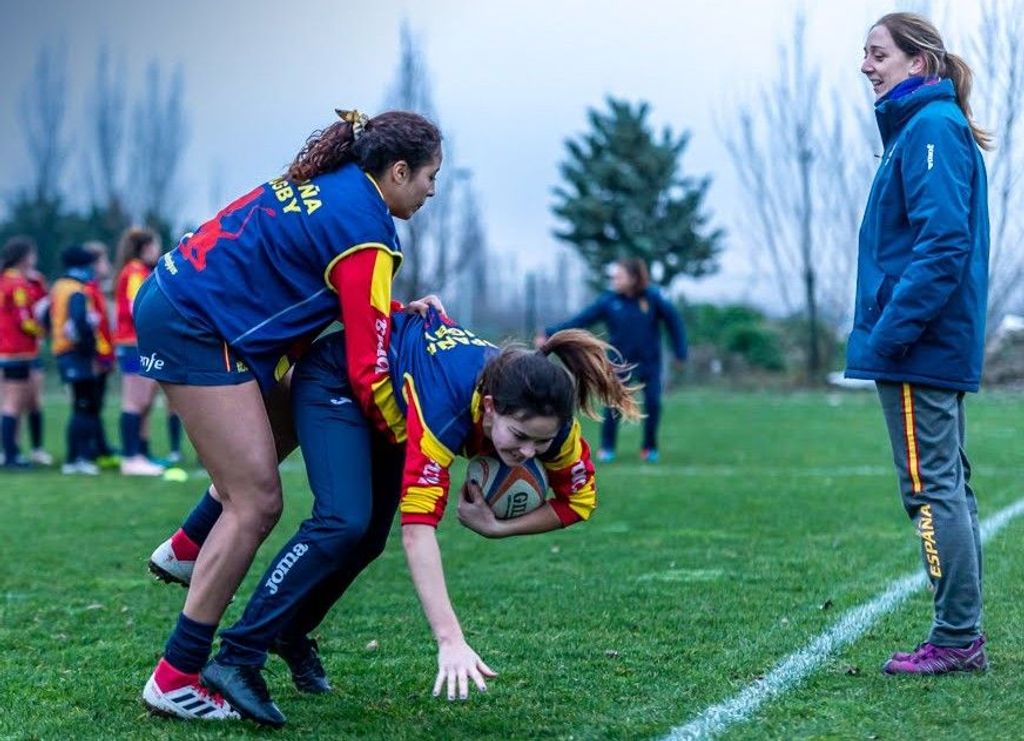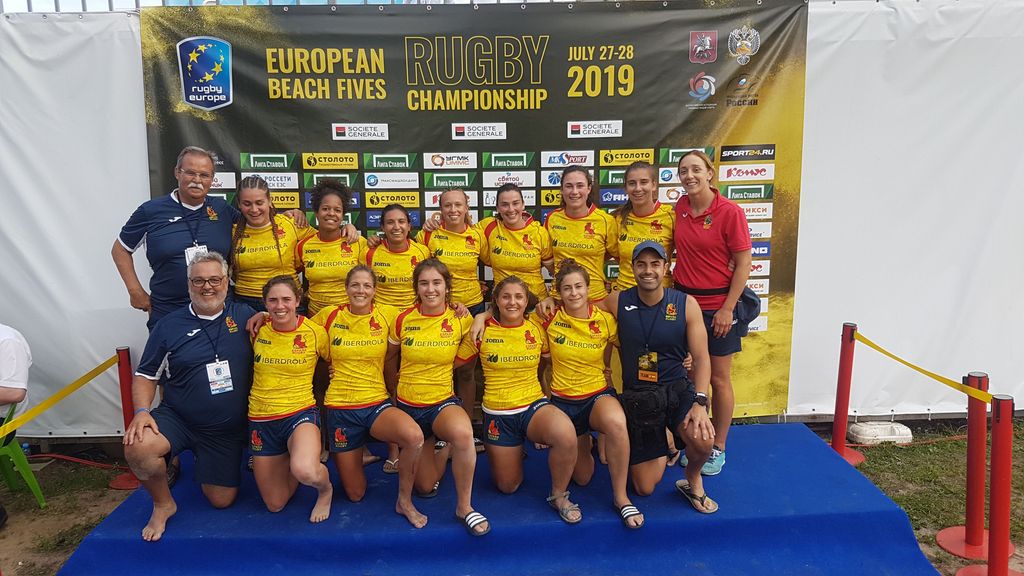Spaniard Berta García travelled the globe during a storied playing career that included stops in London, Waikato, Perpignan and Toulouse.
On the international stage she represented her country at three Rugby World Cups, two Rugby World Cup Sevens and on the sport’s return to the Olympic Games at Rio 2016.
García swapped her playing kit for a coach’s tracksuit following Spain’s 10th-placed finish at RWC 2017 in Ireland and she is determined to play a key role in the continued development of the women’s game on the Iberian peninsular.
Those experiences gained at Richmond, Waikato, USAP and Stade Toulousain mean that García is well placed to gauge the potential for women’s rugby in Spain — and she believes the future is bright.
“Yes! It is growing a lot,” García replied when asked about the popularity of the game at home.

“But we need more! We have a good reference near, in France and England, to increase the national competition and clubs.
“I hope the level increases and rugby becomes as good at international levels as other team sports in Spain.”
Coaching ambitions
García is eager to do her bit to help that dream become a reality.
Having returned from Rio, where Spain finished seventh, she was offered the chance to step into coaching with Real Grupo Cultura Covadonga (RGCC), a club based in the Asturian city of Gijon.
She was charged with growing the rugby section of the multi-sport club, which has more than 39,000 members, and hopes to translate that into nationwide results.
“My ambition would be to work with the club from my region in order to increase the level of rugby in Spain.”
That dream was crystallised last year when García was named as one of seven female coaches selected to participate in the Women’s Sport Leadership Academy for High Performance Coaches (WSLA HPC) as part of a pilot programme in partnership with the International Olympic Committee (IOC).
García, who also works in a development role at the Federación Española de Rugby (FER), was convinced to apply for the programme following a conversation with the union’s development manager, César Archilla.
“It’s an important scholarship because World Rugby and [the] IOC are involved in it.” she said.
“To be the Spanish coach for me was a great award.

“Rugby is not as popular in Spain as other sports. However, Spanish women are always part of international competition.”
Making connections
In November, García travelled to England to take part in the first WSLA HPC residential week where she mixed not only with the six other rugby representatives but also coaches from cycling, rowing, tennis, triathlon and wrestling.
“I was very happy from the start to finish. The atmosphere was amazing and everyone couldn’t wait to start learning and working with each other,” García said about her experience in England.
“[Meeting the other coaches] was very good. It was the best part of the week.
“I liked talking with them a lot. For example, I talked to Marithy [Pienaar] about the Olympics and why South Africa couldn’t go to Rio and Tokyo.
“Also I talked to Victoria [Grant] about our common friends in Hamilton; Te, Chelsea and Muzz.”
García was proud to represent Spain around the world as a player, and that remains the case now she is stepping into the world of high performance.
“[WSLA HPC] is an important individual opportunity for a Spanish coach to be part of the programme,” she explained.
“I have always wanted to work in sport. When I was younger I loved to play sport and [now] I’m older I want to coach and help young people enjoy sport.”







